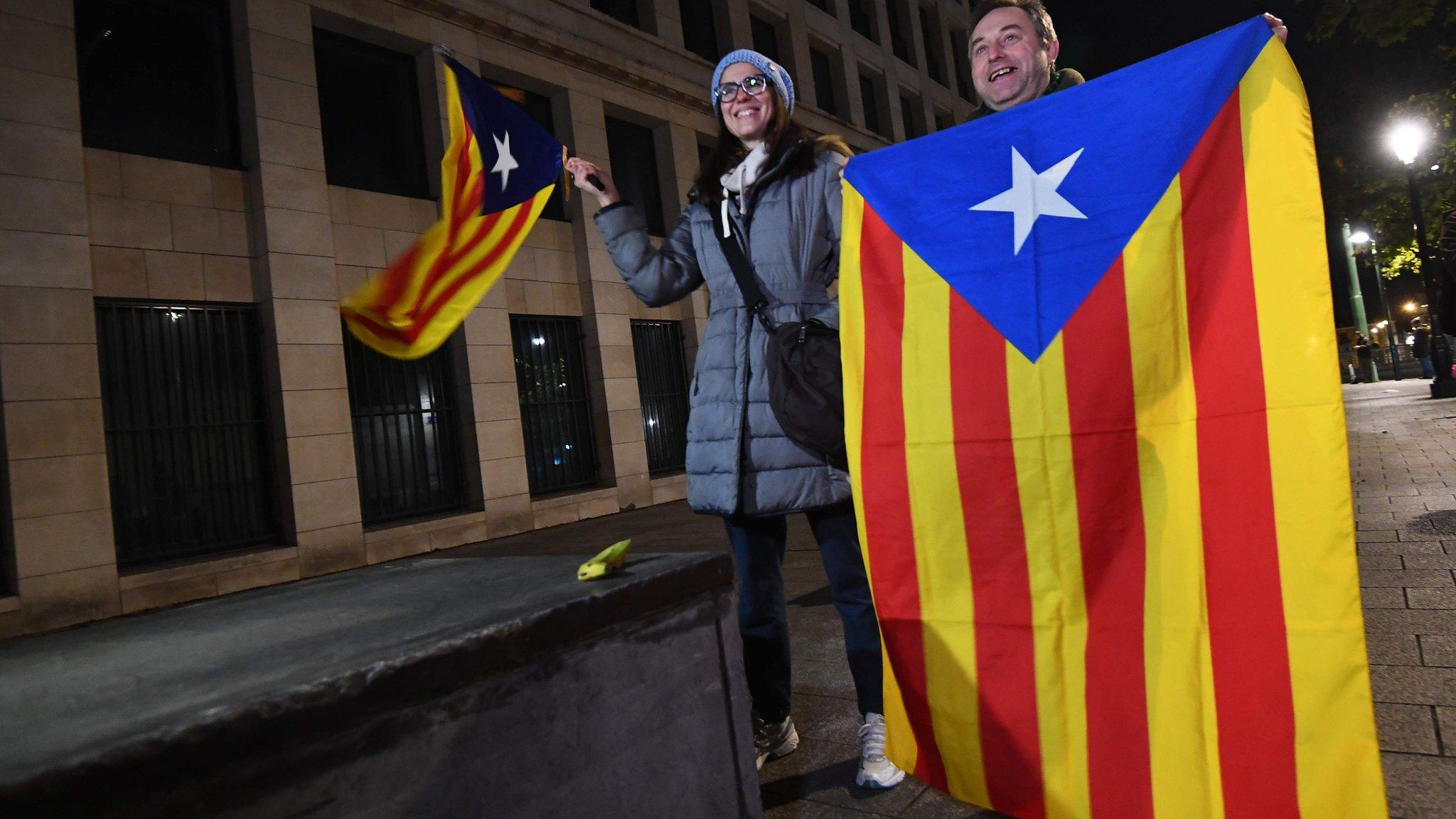Ex-Catalan minister to hand herself in to police on Wednesday
- Published

Clara Ponsati is expected to face an extradition hearing in Edinburgh on Wednesday
Former Catalan minister Clara Ponsati will hand herself in to Police Scotland on Wednesday, her lawyer has said.
Aamar Anwar said she would attend a police station in Edinburgh where a European Arrest Warrant would be formally served.
Ms Ponsati was education minister in the Catalan government.
The Spanish authorities are pursuing Catalan leaders for their role in holding an independence referendum. They face charges of rebellion.
The Scottish government has written to the Spanish ambassador voicing "regret" at the move, but has stressed that it has no choice but to follow due process and comply with the warrant.
Mr Anwar said: "I have arranged with Police Scotland for the voluntary attendance of Prof Clara Ponsati at St Leonard's Police Station, Edinburgh, on Wednesday 28th March.
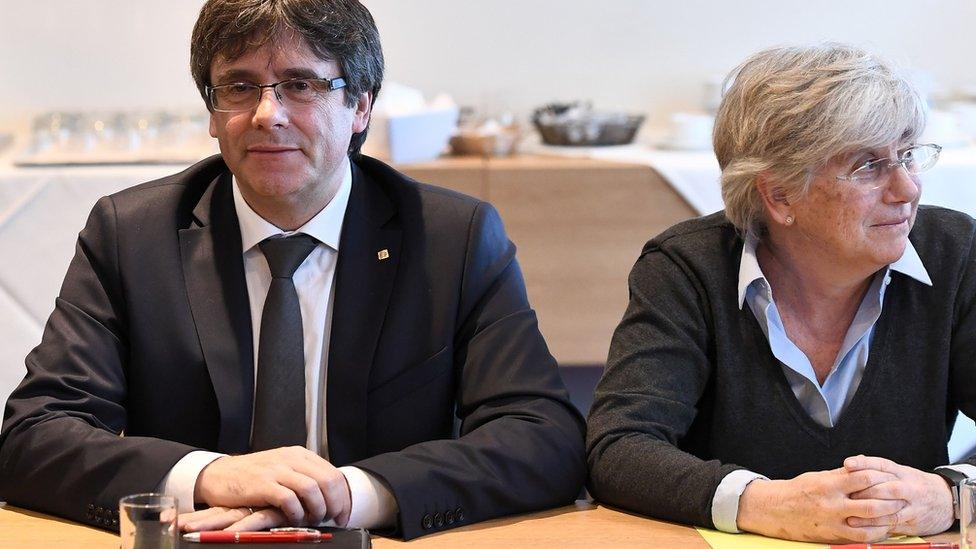
Former Catalan leader Carles Puigdemont and Prof Ponsati in Brussels at the beginning of February
"After we enter, Police Scotland will then place my client under arrest and formally serve the European Arrest Warrant on her.
"I understand that Clara Ponsati faces charges of violent rebellion and misappropriation of public funds which relates to the organising of the referendum, which my client utterly refutes."
Mr Anwar added that an extradition hearing would be held at Edinburgh Sheriff Court on Wednesday afternoon where he would apply for bail ahead of a full hearing, likely to happen in "several weeks time".
Ms Ponsati fled to Brussels with former leader Carles Puigdemont, then returned to the University of St Andrews where she had previously worked.
A Spanish judge reactivated warrants for Mr Puigdemont, Ms Ponsati and three other former ministers on Friday.
Mr Puigdemont was detained in Germany, sparking protests across Catalonia on Sunday.
Scottish Justice Secretary Michael Matheson voiced "deep regret" at the situation, but said ministers had "no powers" to intervene in the judicial process.
After a question was tabled on the topic at Holyrood, he told MSPs: "We profoundly regret that the Spanish government has failed to engage in dialogue with Catalonia's politicians, and the issue is now instead subject to the judicial process.
"We have today been in touch with the Spanish embassy, and the cabinet secretary for culture, tourism and external affairs is writing to the Spanish ambassador to express the Scottish government's regret at the issuing of a European Arrest Warrant for members of the former Catalan government and re-elected members of the Catalan parliament.
"The fact that our justice system is legally obliged to follow due process in the determination of extradition requests does not change those views."
Mr Matheson added that it was "time for dialogue to replace confrontation" over the issue of Catalan independence, calling for a solution which respects the rule of law but also democracy and the right of the people to choose their own future.
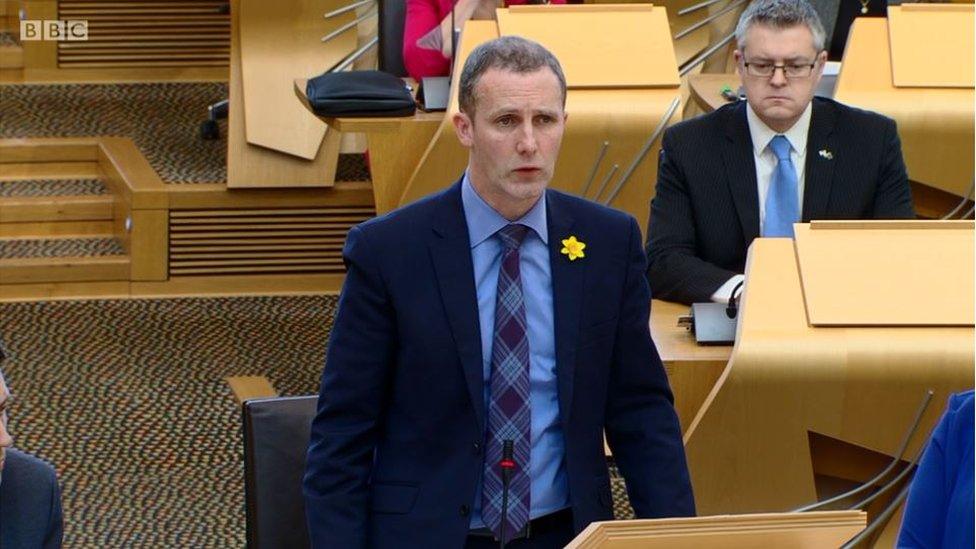
Scottish Justice Secretary Michael Matheson voiced "profound regret" at the situation
Mr Anwar said his client, Ms Ponsati viewed the charges she faces as "political persecution" and believed her human rights and justice could not be guaranteed in the Spanish courts.
He added: "Clara remains defiant and resolute and believes that the Spanish government will never be able to crush the spirit of the Catalan people.
"She is truly humbled by the support she has received from across Scotland as well as that of the Scottish government, but believes that it is right that our courts must now decide what happens next."
Scotland's first minister, Nicola Sturgeon, led a discussion of the matter at her weekly cabinet meeting on Tuesday.
A spokesman said she had reiterated her support for the right of the Catalan people to determine their own future, but said the Scottish authorities were obliged to follow due process and ministers were not permitted to intervene.

An extradition lawyer's verdict
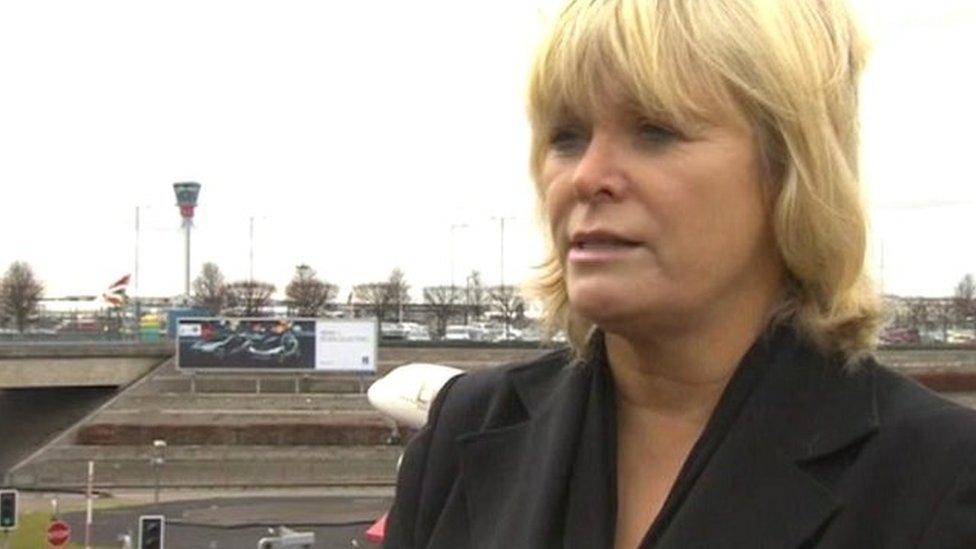
Karen Todner said Ms Ponseti could have grounds to challenge the warrant
Karen Todner has worked on many high-profile extradition cases including those of the hackers Gary McKinnon and Lauri Love.
The lawyer told BBC Scotland she thinks Ms Ponsati has two grounds on which to challenge the European Arrest Warrant.
Firstly, Ms Todner said Scotland could only extradite suspects if the alleged offence was also punishable under Scots law.
She said rebellion was not a specific criminal offence in Scotland, although there is a crime of treason, which covers crimes of disloyalty to the Crown.
Ms Todner also said the request for extradition could be challenged if it was shown to be "not properly motivated".
"If this can be shown to be a politically-motivated request for an extradition warrant then she could defeat the application for extradition," she said.
The lawyer said it was rare for European Arrest Warrants to be refused for this reason.
"Obviously, as part of the European Union we are supposed to believe that all requests are fair and proper," she said.
"For something to be politically motivated in the European system is very unusual."
Ms Todner said the extradition decision was purely for the Scottish courts to decide and there could not be any interference from the Scottish government.
She said Ms Ponsati would appear in court within 48 hours of her arrest but the extradition hearing would take months and could then be challenged all the way to the High Court.
"This is a process that could go on for quite a while," she said.
"Extradition is not about guilt or innocence.
"It is about matters such as human rights and whether any political influence is coming forward in the extradition process.
"One of the key things about the European Arrest Warrant system is that there is no evidence called in respect of the actual case.
"The defendant will not see the evidence. It is literally whether they will be dealt with fairly in the requesting country."

- Published26 March 2018
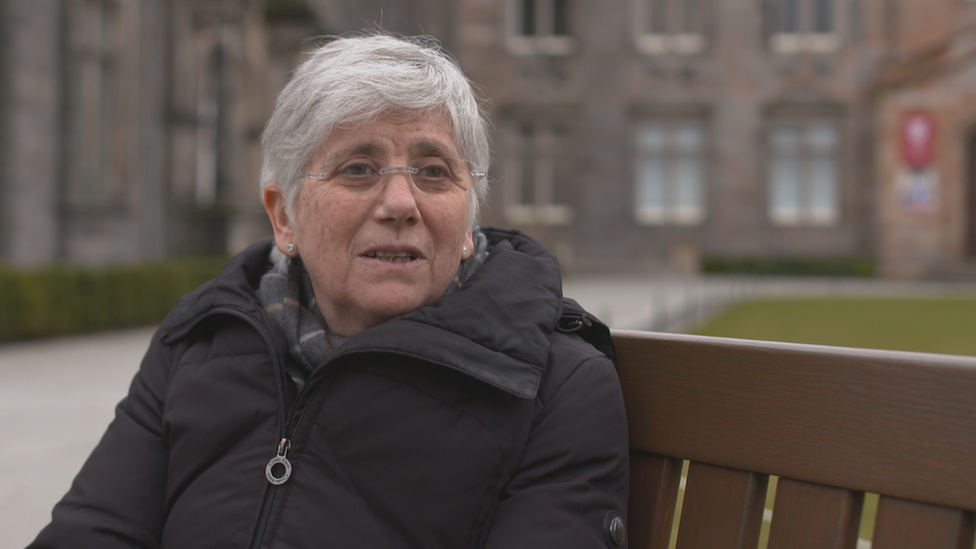
- Published25 March 2018
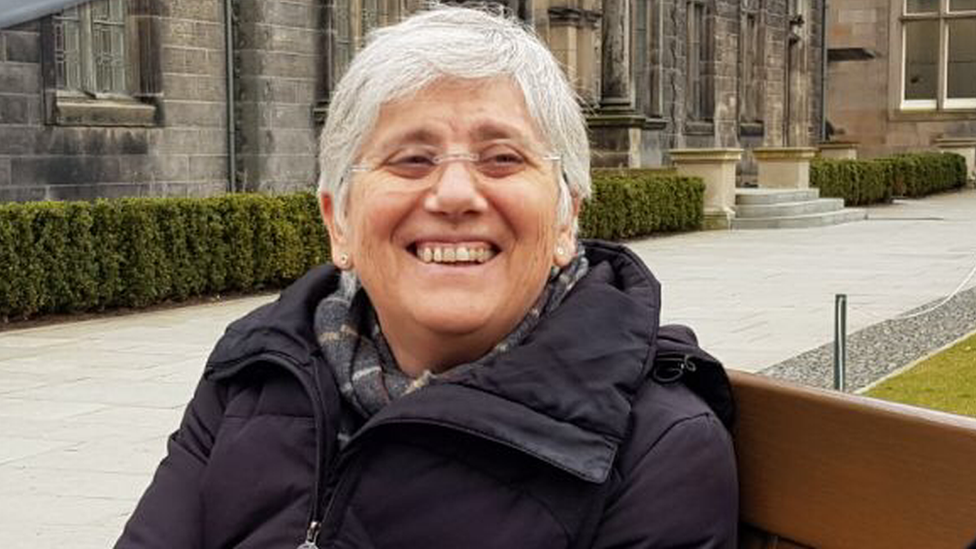
- Published2 November 2017
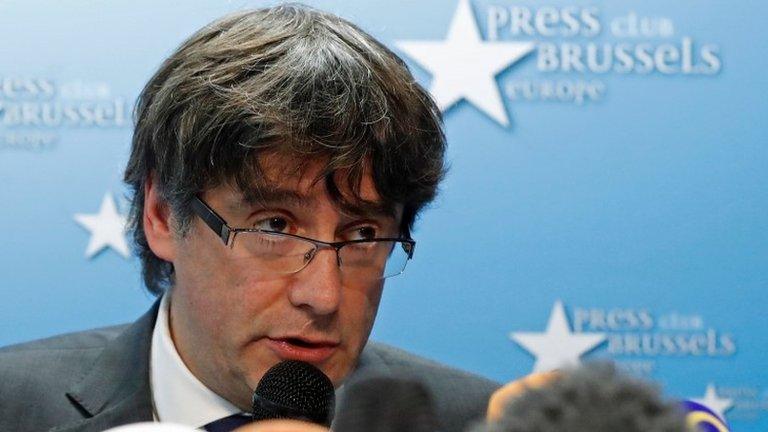
- Published6 November 2017
